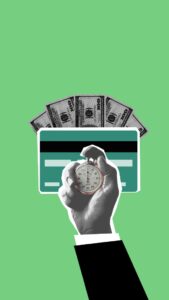Setting Financial Goals
Financial goals are the cornerstone of a well-structured household budget. Establishing clear and specific objectives allows individuals to focus their resources and efforts towards achieving long-term financial stability. By outlining targets such as debt reduction, savings contributions, or investment milestones, individuals can create a roadmap that guides their financial decisions and helps them stay on track.
When setting financial goals, it is crucial to consider both short-term and long-term aspirations. Short-term goals provide immediate direction and motivation, while long-term goals offer a strategic vision for future financial success. By aligning these objectives with a comprehensive budgeting plan, individuals can proactively manage their finances and make informed decisions that contribute to their overall financial well-being.
Tracking Income and Expenses
In managing personal finances, tracking expenses is crucial. It involves recording all expenditures to gain a clear understanding of where money is being spent. By diligently tracking expenses, individuals can identify areas where overspending occurs and make informed decisions to cut costs and improve financial health. This meticulous process is an essential aspect of income management, as it provides insights into spending patterns and enables individuals to align their expenses with their financial goals.
Moreover, tracking income is equally important in achieving financial stability. By keeping a detailed record of all sources of income, individuals can develop a comprehensive picture of their financial resources. This practice allows for better planning and allocation of funds towards savings, investments, and necessary expenses. Effectively managing income is a key component of financial success and ensures that individuals are aware of their financial capabilities and limitations.
Categorizing Spending
When managing your finances, it is essential to categorize your spending accurately. By creating specific expense categories, you can gain a clear understanding of where your money is going each month. This practice enables you to identify areas where cost-cutting measures can be implemented effectively. For instance, by breaking down your expenses into categories such as groceries, transportation, entertainment, and utilities, you can pinpoint areas where you may be overspending and make adjustments accordingly.
Categorizing your spending also allows for better organization and tracking of your financial activities. With a detailed breakdown of expenses, you can easily see how much you are allocating to each category and whether adjustments need to be made to stay within your budget. Additionally, by regularly reviewing and updating your expense categories, you can make informed decisions on where to reduce costs and reallocate funds towards your financial goals.
Cutting Unnecessary Costs
To achieve financial stability, it is essential to scrutinize your expenses with a discerning eye. By evaluating your spending habits, you can identify areas where unnecessary costs can be eliminated. This exercise not only aids in bolstering your emergency fund but also paves the way for effective planning towards large purchases.
In the quest for financial prudence, it is imperative to distinguish between essential and non-essential expenditures. Prioritizing your financial well-being involves making informed decisions about where and how your money is allocated. By trimming frivolous expenses, you can fortify your financial standing and allocate resources towards endeavors that align with your long-term goals.
Building an Emergency Fund
It is essential to prioritize establishing an emergency fund as part of your financial strategy. This fund serves as a safety net, ensuring you are prepared for unexpected expenses or financial hardships that may arise. To build this fund effectively, allocate a set amount of your income each month towards it. By consistently contributing to your emergency fund, you can gradually increase its size and financial security.
Regular budget review is crucial in determining the amount you can allocate towards your emergency fund. Through diligent budget tracking and categorization of spending habits, you can identify areas where costs can be reduced or eliminated to free up funds for this purpose. Adjusting your budget to prioritize your emergency fund demonstrates your commitment to financial stability and preparedness for any unforeseen circumstances that may impact your finances.
Planning for Large Purchases
It is crucial to approach large purchases with a strategic mindset to ensure financial stability and avoid unnecessary debt. Start by identifying the specific item you intend to purchase, whether it is a new vehicle, home renovation, or major household appliance. Research extensively to understand the market trends, pricing, and potential financing options available.
Next, evaluate your current financial situation to determine if you have the necessary funds or if you need to save up for the purchase. Assess your budget and consider how the large expense will impact your overall financial goals and stability. It may be necessary to adjust your spending habits or increase your income temporarily to accommodate the purchase without compromising your financial health.
• Research extensively to understand market trends, pricing, and financing options
• Identify the specific item you intend to purchase
• Evaluate your current financial situation to determine if you have necessary funds
• Assess budget and consider impact on overall financial goals
• Adjust spending habits or increase income temporarily if needed
Reviewing and Adjusting the Budget
Regularly analyzing financial data is vital to ensure fiscal stability. Budget assessments should be conducted routinely to gauge spending habits against established financial objectives. By comparing actual expenses with the budget plan, individuals can identify discrepancies and make necessary adjustments to stay on track. A meticulous approach to reviewing the budget fosters a deeper understanding of where money is being allocated and allows for refinement of financial strategies.
Fine-tuning the budget empowers individuals to proactively manage their finances with precision. It enables them to reallocate resources towards high-priority expenses while identifying opportunities to save or invest. Through consistent monitoring and adjustments, individuals can cultivate financial resilience and work towards achieving long-term financial goals. Attention to detail and a commitment to regular budget reviews exemplify a conscientious approach to fiscal management.



